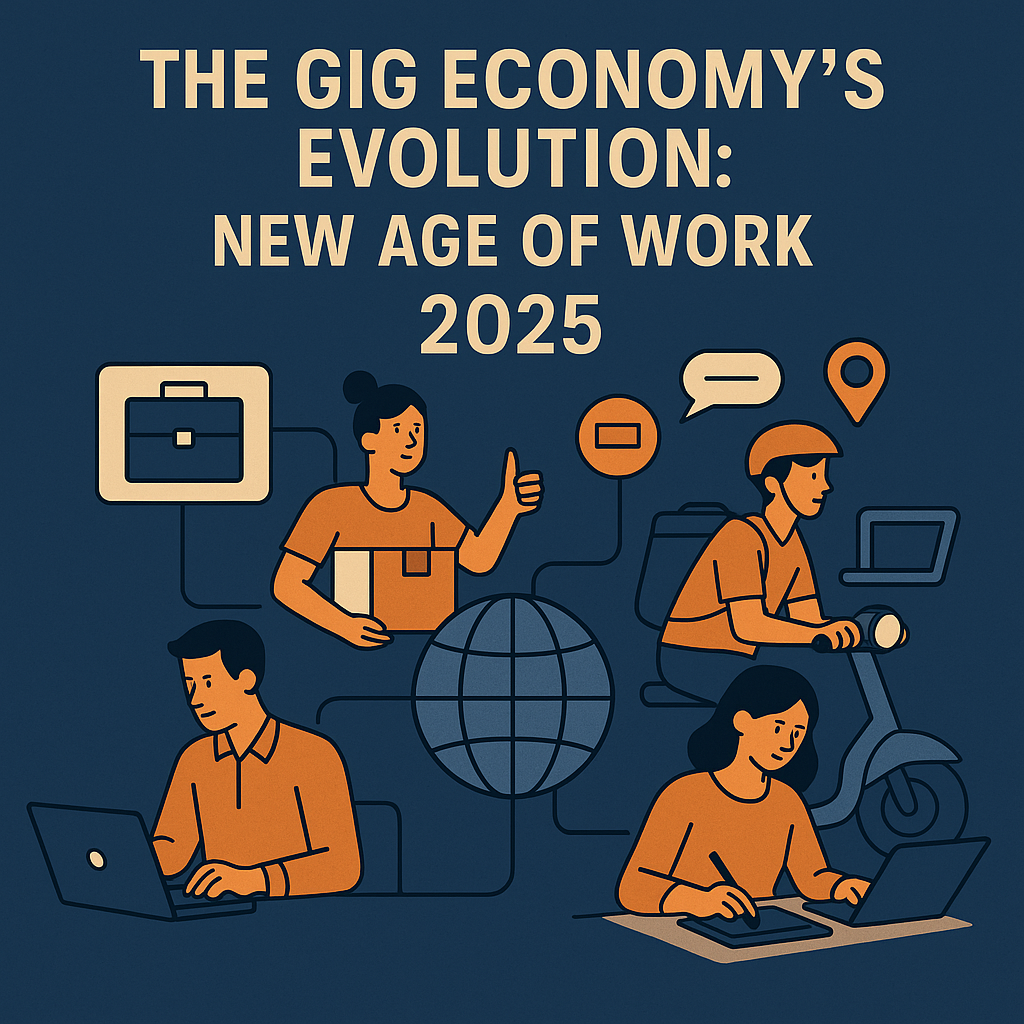
The Gig Economy’s Evolution: Opportunities and Challenges
The gig economy has become a powerful force in the global labor market, reshaping how individuals work and how businesses operate. In 2025, the evolution of gig work continues to blur the lines between freelance independence and structured employment. With platforms expanding and technology transforming the way people connect with work, new opportunities and challenges are emerging daily.
At Intellitron Genesis, we support gig professionals and enterprises alike with cutting-edge digital services—from web and mobile app development to 3D product design, e-commerce solutions, and digital marketing—built to thrive in the new work economy.
Section 1: The Gig Economy Defined
The gig economy refers to a labor market characterized by short-term contracts, freelance projects, or on-demand work rather than permanent jobs. It encompasses roles ranging from rideshare drivers and food delivery agents to freelance developers, designers, marketers, and consultants.
Key statistics:
- Over 52% of global workers are projected to engage in freelance or gig work by 2027.
- Platforms like Upwork, Fiverr, TaskRabbit, and Toptal have grown exponentially.
- Digital tools and platforms are making remote, cross-border work seamless.
Section 2: Opportunities in the Evolving Gig Economy
- Flexibility and Autonomy
Gig work allows individuals to set their own hours, work from anywhere, and take control of their careers. It appeals to those seeking work-life balance or supplemental income. - Access to Global Talent
Companies now hire specialists from around the world for specific tasks, reducing costs and accessing diverse skill sets. - Scalable Workforce
For startups and enterprises alike, gig workers offer an agile, scalable labor model—ideal for short-term projects or experimental ventures. - Technological Enablement
With mobile apps, cloud platforms, and payment systems evolving rapidly, gig workers are more empowered than ever. Intellitron Genesis helps businesses build secure, scalable platforms to manage and connect with remote talent.
Section 3: Challenges Facing Gig Workers and Employers
- Income Stability and Benefits
Gig workers often lack job security, health insurance, and retirement plans. This makes financial planning and long-term security difficult. - Legal and Tax Complications
Classifying workers as contractors vs. employees poses regulatory challenges. Laws around the gig economy are evolving, but remain inconsistent globally. - Platform Dependency
Many gig professionals rely heavily on specific platforms, risking income loss if platform policies change or accounts are suspended. - Digital Disparities
Without access to quality tools or digital infrastructure, many workers in developing regions face barriers to competing in the global gig market.
Section 4: How Digital Transformation Powers the Gig Economy
Digital transformation is the lifeblood of the modern gig economy. Intellitron Genesis empowers businesses and freelancers to leverage this shift with:
- Website Development: Customized, SEO-optimized portals for freelancer portfolios or gig service platforms.
- E-Commerce Solutions: Build on-demand marketplaces or personalized storefronts for gig-based products and services.
- Mobile App Development: Scalable gig work apps for scheduling, task management, payments, and communication.
- Digital Marketing: Enhance visibility and lead generation for freelancers and gig platforms via SEO, PPC, and social campaigns.
- Graphic Design & Video Editing: High-quality branding, content, and multimedia to establish authority in a competitive gig landscape.
- 3D Product Design: Freelancers offering 3D models, AR assets, or animation benefit from tools that enhance product visualization.
Section 5: What the Future Holds for the Gig Economy
The gig economy will continue evolving, driven by:
- AI-powered platforms that match clients and talent more efficiently.
- Blockchain-based smart contracts for secure and transparent work agreements.
- Government reforms offering protections without curbing flexibility.
- A rising class of “solopreneurs” building scalable personal brands online.
For businesses, adapting to the gig-driven model means upgrading their digital capabilities to attract and retain top freelance talent. For freelancers, it means standing out through strategic personal branding, optimized platforms, and professional service delivery.
Conclusion: Powering the Gig Future with Intellitron Genesis
As the gig economy matures, the tools, platforms, and strategies that power it must evolve too. Whether you’re building the next big gig app, launching a freelancer marketplace, or upgrading your digital presence to attract flexible talent, Intellitron Genesis is your strategic partner in digital growth.
Explore how our web development, e-commerce, digital marketing, video editing, 3D design, and mobile app solutions can elevate your gig economy strategy.
Let’s build the future of work—together.

0 comments